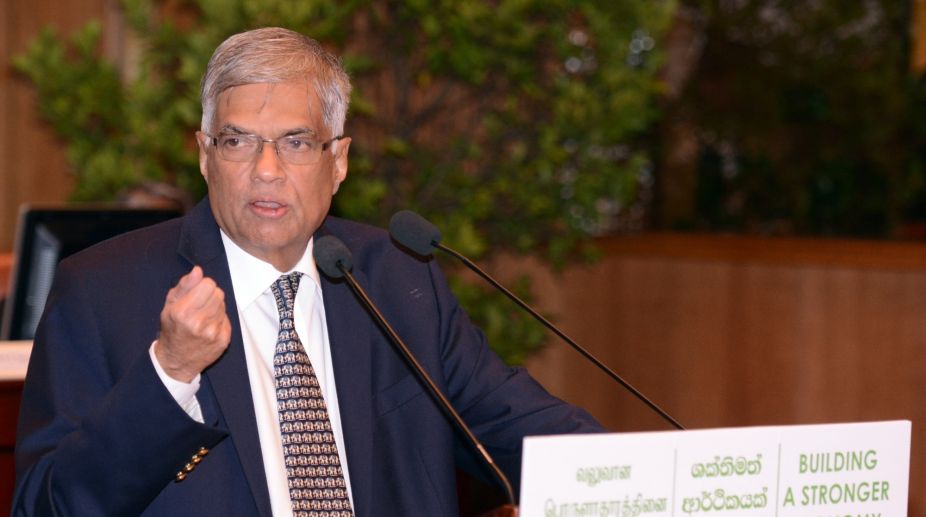The Bible says, “A house divided against itself will not stand.” With President Maithripala Sirisena of the Sri Lanka Freedom Party, President of Sri Lanka, voting for the no-confidence motion against Prime Minister Ranil Wickremesinghe of the United National Party along with a group of 15 SLFP Cabinet ministers, state ministers and deputy ministers representing the so-called unity government, Parliament has become a house divided against itself and it is unlikely to complete the remaining two years of its term.
Besides the ministers, a group of SLFP MPs also voted in support of the motion. Wickremesinghe won with a comfortable majority ~ 122 voting against the motion, 76 for and 26 absent. Leader of the Ceylon Workers Congress Arumugam Thondaman representing Indian origin Tamils was among the MPs who were absent.
Advertisement
Four SLFP MPs, including deputy minister Nishantha Muthuhetigama, who had signed the no-confidence motion against the Prime Minister before it was handed over to the Speaker by the Joint Opposition, was conspicuously absent during the voting after a marathon debate.
The Tamil National Alliance, one of the key players in the formation of the national unity government, and the Eelam People’s Democratic Party of Douglas Devananda opposed the motion. Sirisena of the SLFP had joined hands with Wickremesinghe of the UNP to oust Mahinda Rajapaksa in January 2015 after he had been a decade in power.
But the two were embroiled in a power struggle in the first-ever unity government since Sri Lanka attained independence seven decades ago. From the time of independence ethnic strife haunted Sri Lanka culminating in 30 years of civil war which ended in 2008, raising hopes that peace would prevail facilitating the nation’s economic growth and social advancement.
Well-meaning people believed the coming together of the two major political parties in the country, the UNP and the SLFP, and the formation of the unity government would usher in an era of peace and prosperity. But a permanent solution to the ethnic problem continues to elude the island nation. The recent communal clashes necessitating the imposition of national emergency have set the clock back.
By teaming up with discredited former President Rajapaksa, Sirisena has brought down his own credibility to the lowest ebb. He owed it to the people who put him in power with a clear mandate to work with Wickremesinghe and the UNP MPs to fulfill this mandate.
He has not only failed the nation but paved the way for Rajapaksa’s political rebirth. Wickremesinghe should learn to work in a coalition of disparate parties with a commonly agreed minimum programme. The no-confidence motion against Wickremesinghe sponsored by the ‘joint opposition’ was the brainchild of Rajapaksa. Sirisena better watch out!









